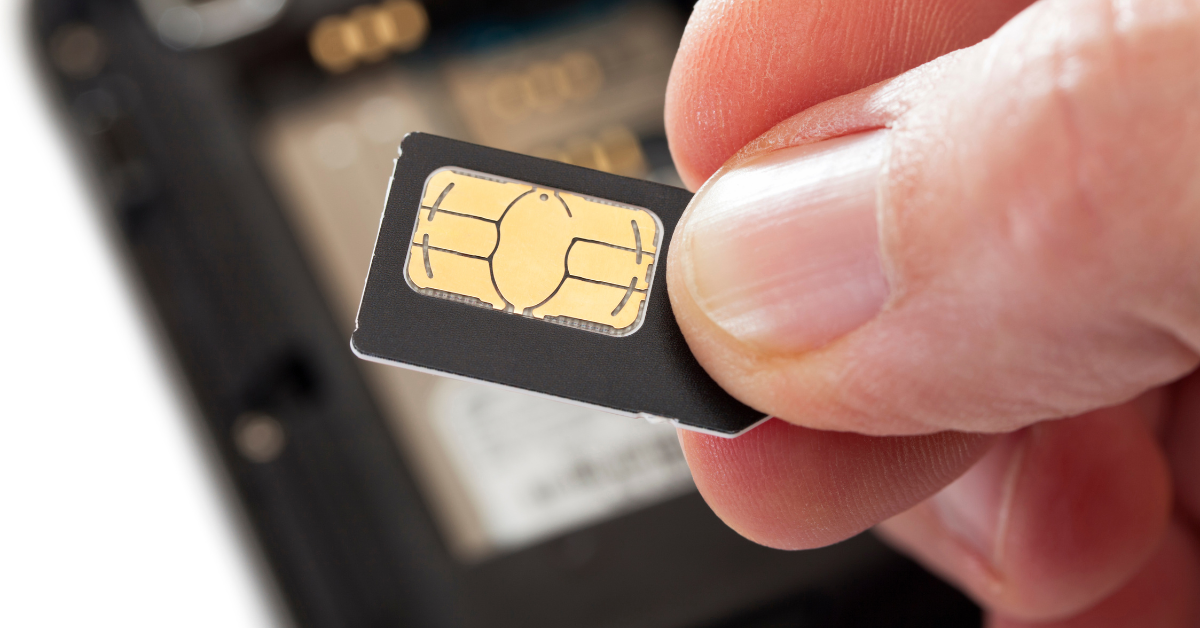In the Philippines, a bill is passed through Congress requiring all citizens to register their SIM cards. The proposed “Sim Card Registration Act” would make it mandatory for all mobile users in the country to provide their name and other personal information when purchasing a SIM card. Proponents of the bill say it will help fight crime, while opponents argue that it would invade privacy. What do you think? Let us know in the comments!
What is the Sim Card Registration Act in the Philippines 2022
The sim card registration act is a new bill recently passed in the Philippines. This bill requires all sim card users to register their sim cards with the government. The sim card registration bill is designed to help the government track down criminals and terrorists who use sim cards to communicate with each other. It will also help the government monitor the activities of sim card users and prevent them from engaging in illegal activities. It’s controversial, and it remains to be seen how effective it will be in combating crime and terrorism. However, the sim card registration act will significantly impact how sim cards are used in the Philippines.
What measures should be put into place to ensure a smooth transition to the new law
The Sim Card Registration Act, or Republic Act 11934, was passed in August 2020 and required all subscribers to provide their name, address, date of birth, gender, and occupation when registering for a new SIM card. The bill also requires operators to verify the identity of subscribers using valid ID documents.
The sim card registration bill Philippines is a response to the growing problem of online fraud and identity theft in the country. By requiring users to provide their personal information when registering for a new SIM card, the government hopes to reduce the number of fraudulent transactions and identities created yearly.
Some wrinkles still need to be ironed out; for instance, many users are unaware of the new requirement and only find out when they try to register a new SIM card. However, overall the sim card registration act is a positive step forward in protecting the identities of Filipino citizens. With a little more awareness and education, it can only become more effective in preventing fraud and protecting people’s personal information.
Benefits of the Sim Card Registration Act
The Sim Card Registration Act, or sim card registration bill in the Philippines, is a new law that will help reduce crime rates in the Philippines. The law requires all sim card users to register their sim card with their name, address, and date of birth. The registration process will help the government track sim card owners and ensure they use their sim card for legitimate purposes. In addition, the law requires sim card providers to deactivate sim cards used for criminal activity. It will help to prevent criminals from using disposable sim cards to avoid detection. The Sim Card Registration Act is a necessary step in the fight against crime in the Philippines. The government can help reduce crime rates and keep the Philippines safe by making it more difficult for criminals to use sim cards.
Frequently Asked Questions (FAQs) Sim Card Registration Act
Q1: What is the Sim Card Registration Act?
A1: The Sim Card Registration Act, or sim card registration bill in the Philippines, is a new law that requires all sim card users to register their sim cards with their name, address, and date of birth. This law aims to help reduce crime rates in the Philippines by making it more difficult for criminals to use disposable SIM cards.
Q2: Will any exceptions be made for foreigners visiting or living in the Philippines?
A2: Yes, certain exemptions are available for tourists, students, and employees of foreign companies with offices in the Philippines. If you meet one of these requirements, you may be able to apply for an exemption from sim card registration.
Q3: Are there any other countries that have implemented a similar law, and how has it worked out for them?
A3: Several countries have implemented sim card registration laws, but the results have been mixed. In Pakistan, the law has had some success in helping to track criminals, while in Nigeria, implementation of the law has been delayed due to concerns over its effectiveness. Ultimately time will tell whether these laws are effective at reducing crime or just an additional burden on citizens.
Q4: What are the penalties for not registering my SIM Card?
A4: If you fail to register your SIM Card within 30 days of arrival in the Philippines, you could face a fine of up to 20,000 pesos or even deportation. Therefore, you must take the necessary steps to register your SIM Card as soon as possible.
Q5: Where can I get more information about the Sim Card Registration Act?
A5: For more information about the Sim Card Registration Act, consult your local authorities or a telecommunications provider. They will be able to give you up-to-date information on the laws and regulations in your area. You can also find more detailed information online.
Q6: Is there any way for me to avoid having to register my SIM card?
A6: A few exceptions allow certain people to avoid registering their SIM cards. However, if you plan to stay in the Philippines longer than 30 days, you must register your SIM card in order to comply with the law. Failure to register could result in severe penalties.
Q7: Is there any other way to keep my SIM card secure besides registering it?
A7: You should always take precautions when using your SIM Card. Ensure you are familiar with your provider’s security features and regularly change your PIN code to prevent unauthorized access. Additionally, you should avoid sharing confidential information over text or phone calls, as this can lead to identity theft or fraud.
Q8: Are there any benefits to registering my Sim card?
A8: Although the primary purpose of registration is for increased security, some cellular providers offer discounts and other incentives for customers who register their SIM cards. It is worth checking with your provider to see what benefits they offer. By registering your SIM card, you can also protect yourself from being held liable for any illegal activities on your phone or sim card.
Q9: Can I register my Sim card online?
A9: Yes, most cellular providers now allow customers to register their SIM cards online. This process is generally quick and stress-free and does not require the customer to visit a physical store. However, it is essential to note that the relevant authorities must still verify all registration details before the SIM card can be activated and used.
Q10: Is there an age requirement to register a Sim Card?
A10: Yes, anyone who wishes to register a Sim Card must be 18 years or older. Additionally, minors can only register a SIM card if they are accompanied by an adult who will take responsibility for them. As part of the registration process, you may also need proof of identity, such as a passport or driver’s license.
Q11: Can I transfer my Sim Card registration from one provider to another?
A11: Yes, it is possible to transfer your Sim Card registration from one provider to another. In most cases, you must contact your current provider and request that they cancel your existing contract and transfer your details over to the new provider. It should be done before canceling any existing services with your old provider.
Q12: What happens if I lose my Sim Card?
A12: If you lose your SIM card, you should contact your service provider as soon as possible to report the loss and have it canceled. You may also need to provide proof of identity for them to deactivate the SIM card. Once this has been done, you will need to register a new SIM card if you wish to continue using services from your provider.
Q13: What other information do I need to provide when registering a Sim Card?
A13: Depending on your provider, you may also be asked to provide additional information when registering your SIM card. It could include details such as your name, address, and date of birth. Some providers also require that customers submit copies of identity documents such as passports or driver’s licenses to verify the registration. This information must be accurate and up-to-date to ensure a smooth registration process.
Q14: Is there any cost associated with registering my Sim Card?
A14: No, there are usually no fees associated with registering your SIM card. However, your service provider may charge you for any services or features that require registration, such as international calling plans or data packages. It is essential to check with your provider before signing up for these services to avoid any unexpected costs.
Q15: Is it possible to have multiple Sim Cards registered under one account?
A15: Yes, it is possible to register more than one SIM card under a single account. It can be helpful if you need to use different SIM cards in other locations or if you want to take advantage of multiple offers from the same provider. However, each SIM card will still need unique registration details and cannot be shared between accounts.
Q16: Is registering a Sim Card without the physical card?
A16: Yes, most cellular providers now allow customers to register a SIM card online. In this case, you do not need the physical SIM card, as all necessary information can be provided during the registration process. However, it is essential to note that all details must still be verified by the relevant authorities before your SIM card can be activated and used.
Q17: Is there any special documentation needed when registering a Sim Card?
A17: Depending on your provider, you may need to provide additional documents to verify your identity and complete the registration process. It could include copies of passports or driver’s licenses and proof of address such as a utility bill or bank statement. It is essential to check with your provider before submitting any documentation to ensure that you provide the correct information.
Q18: Are there age restrictions when registering a Sim Card?
A18: Generally, most service providers require customers to be 18 years old or older to register a SIM card. However, some providers may also allow younger people to register a SIM cads if a parent or guardian supervises them. It is essential to check with your provider before registering a SIM card to ensure that you meet the age requirements.
Conclusions
The Sim Card Registration Act in the Philippines 2022 is a new law requiring all SIM card users to register their cards with the government. This law is expected to help reduce crime rates in the Philippines, and there are already measures in place to ensure a smooth transition when it goes into effect. However, some exceptions may be made for foreigners visiting or living in the country. So far, similar laws have been implemented in other countries, and they have had mixed results.
Recommended: How To Send Money From Paypal To Gcash: Complete Guide 2022
[email-subscribers-form id=”2″]













Leave a Reply